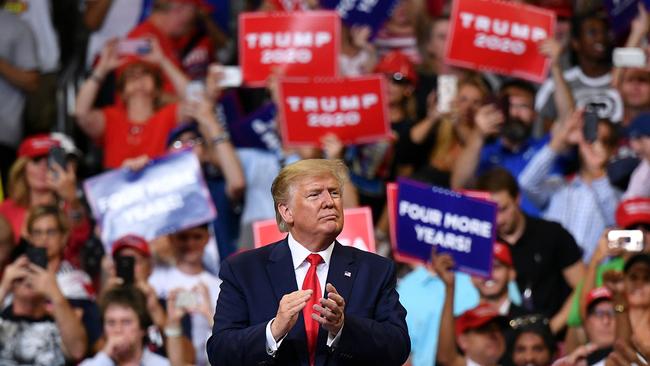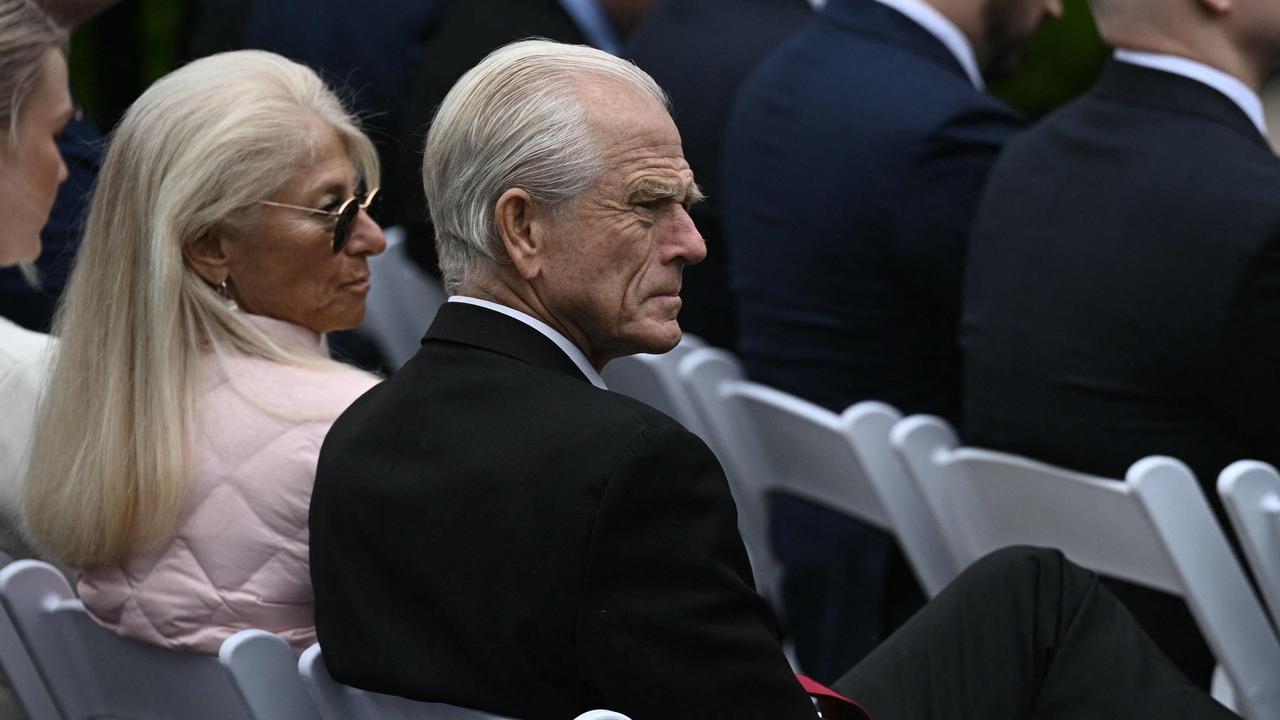
The most striking fact of his speech was how backward looking it was. Incumbents need to remind voters of his record, Mr Trump more than most because the media are so hostile.
The President is also right that his opponents have refused to recognise the legitimacy of his election. House Democrats may still try to impeach him for not obstructing an investigation into what wasn’t a conspiracy with Russia. His sense of “grievance”, to quote the media meme about his speech, on that point is entirely justified.
Yet Mr Trump is asking for four more years, and his preoccupation with vindicating 2016 won’t resonate much beyond his core supporters. Most voters have moved on from 2016, which is why a majority opposes impeachment in every poll. They don’t much care about Mr Trump’s greatest hits about Hillary Clinton, who alas for the President will not be on the ballot in 2020. They want to know why they should take a risk on Mr Trump and his volatile character for another term.
This is all the more important given the way his first term has evolved on policy. One paradox is that his main policy successes have come from pursuing a conventional conservative agenda. The failures have been on the issues like trade and immigration that are the most identified with Trumpian disruption.
The economy’s renewed growth spurt came from tax reform, deregulation, liberating energy production and ending the anti-business harassment of the Obama years. His remaking of the judiciary and rebuilding of the military unite Republicans of all stripes. Criminal justice reform was the result of years of spade work on the right and left.
Mr Trump deserves credit for pursuing all of this despite often ferocious opposition that might have intimidated a different GOP president. That’s true in particular of his withdrawal from the Iran nuclear deal and the Paris climate accord, where US Democratic and media opinion is aligned with Europe’s elites.
On immigration, however, the President missed a chance to strike a deal trading more border security (including his wall) for legalising Dreamers. He must confront the asylum crisis at the border with no help from Democrats. On trade, Mr Trump has disrupted global rules but has put nothing stable in their place. Asking voters to believe he’ll do better on these issues in a second term isn’t likely to turn many swing voters his way.
The other paradox of the Trump presidency is his low approval rating despite a stronger economy. The polls show his approval rating on the economy is above 50 per cent but his overall approval is 44.3 per cent in the RealClearPolitics average. The difference is best explained by Mr Trump’s polarising behavior, which has alienated in particular college-educated voters and Republican women. In the latest Wall Street Journal-NBC poll, Mr Trump is underwater with white college-educated women by a remarkable 20 percentage points.
Mr Trump may figure he can persuade some of those sceptics by making the Democratic nominee even more unpopular than he is. If the Democrats oblige by nominating Bernie Sanders or Elizabeth Warren, that might be possible. But that is making a bet on the other party’s mistake, and a re-election campaign is typically a referendum on the incumbent.
Which is all the more reason to offer voters something more for a second term. He could put Democrats on the spot for high housing prices and homelessness by talking about restrictive zoning for elites and high property taxes. He could offer to reform higher education by making schools responsible for some of the debt of students who can’t repay loans, or invigorate vocational education to help young people who can’t go to college.
He could package health-care proposals to expand choice, reduce prices and make insurance portable; his administration has already proposed some of them. He could advance his theme of “draining the swamp” by offering ideas to reform the civil service. We’d include entitlement reform, but then Mr Trump has shown no interest and we don’t believe in political miracles.
This is far from an exhaustive list, and Mr Trump won’t win as a policy wonk in any case. But Mr Trump also won’t win by relitigating the 2016 election or playing only to his political base. He needs more than he offered voters on Wednesday.
The Wall Street Journal




Donald Trump announced his campaign for a second term at a rally in Orlando on Wednesday that recounted his first-term record and 2016 victory before thousands of rapturous supporters. The only thing missing was an agenda for 2020.